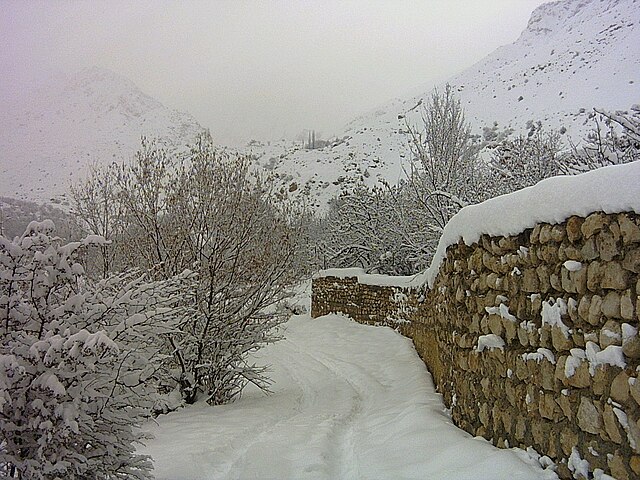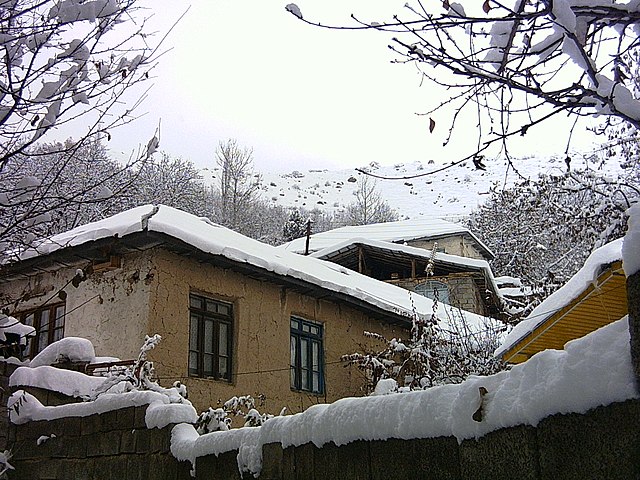
Thammasat University students interested in law, political science, sociology, gender studies, and related subjects may wish to participate in a free Wednesday, 11 May Zoom event: Traces and Afterlives: Iranian Women’s Digital Activism as Narration of Their Struggle.
The seminar is organized by King’s College London (KCL) in the United Kingdom (UK).
The TU Library collection includes several books about different aspects of the culture and history of Iran.
The speaker will be Ahou Koutchesfahani, PhD candidate at the Department of War Studies at KCL.
The discussant will be Dr. Omar Al-Ghazzi, Assistant Professor in the Department of Media and Communications at the London School of Economics and Political Science, UK.
As the event announcement explains,
Social media is an important tool for women’s rights activists to highlight issues facing Iranian women. The discourse on women’s rights in Iran navigates both inside and outside the country, as social media underpins the active transnational Iranian public sphere.
This discussion will highlight the role of social media in furthering women’s rights discourse in the transnational Iranian public sphere. Are competing narratives battling for visibility? Who are the different factions behind the competing narratives? Ahou will argues that social media constitutes a new ground upon which different state and non-state political actors battle for power over women’s bodies while women’s rights advocates struggle in their own battle for visibility, using social media for their activism despite the challenges that arise both domestically and internationally.
Ahou Koutchesfahani is a PhD candidate at the Department of War Studies at KCL. Her research is concerned with feminist politics and social movements, with a focus on Iran. Her thesis traces the trajectory of feminist activism in Iran in the twentieth century to today, with an emphasis on the role of social media in shaping modern feminist discourse. She has previously held roles in digital communications in the public sector and in the third sector.
Students may register to receive a Zoom link at this link.
A number of articles by Dr. Al-Ghazzi are available to TU students from the TU Library website.

The subject of Iranian women’s digital activism has been researched in a thesis submitted to the Department of Political and Social Sciences, the Institute for Media and Communication Studies of the Freie Universität Berlin, Germany in 2018:
Exploring the Impacts of Internet-mediated Communication on Iranian Women’s Rights Activism
is by Dr. Mina Naeli.
Dr. Naeli writes:
Ever since the 1990s, when Internet technology was embraced by the Zapatista liberation movement in Mexico and the anti-globalization activists in Seattle, a wide range of crossdisciplinary research has been conducted on the consequences of the Internet for activism in particular and for socio-political change as a whole. The bulk of the resultant literature sides with utopian or dystopian views of the impacts of the Internet, paying little attention to the sociopolitical context in which activists operate and use the Internet…
Particularly, to date, the involvement of Iranian activists with the Internet has remained substantial but under-researched. In addition to reformists, activists from a variety of groups were among the early participants in virtual space. Individual activists living in Iran or in the diaspora exploited the blogosphere in order to strengthen their public voices, while various websites associated with NGOs and activist organizations also emerged. Since 2007, which saw the beginning of the decline of blogging in Iran, social networking sites have begun to offer new space for Iranian activism. Particularly, before, during, and after the disputed 2009 presidential election, social networking sites, chiefly Facebook, became a popular means of communication for reformists and social activists who promoted issues of social groups such as women, students, and laborers. Recognizing its academic and economic benefits, and aiming to develop egovernment programs, the post-war governments conducted national plans to develop the infrastructure; thus carrying out Internet training programs at schools and governmental organizations. Spurred forward by the country’s growing youthful demographic and considerable growth of educational levels, these efforts resulted in the rapid growth of Internet users in Iran. While there were 250,000 Internet users by the end of 2000, the number of Internet users in 2005 rose to several million. Seventy percent of the population had been provided Internet access by the beginning of 2017, which left Iran with the highest number of Internet users in the Middle East. The objective of this thesis is to explore the impacts of Internet-mediated communication on Iranian women’s rights activism. The case of women’s rights activism provides a window to understanding the role of the Internet within one of the most prominent and dynamic activist circles in the country and the region. In the Islamic Republic of Iran, women’s rights are a “central battleground in the fight for legitimacy and control.” Particularly since the 1979 Revolution, Iranian women’s rights activism has succeeded in advancing women’s equality within the realms of family, education, and employment. Such activism existed before the Internet age and became an early adapter of the Internet in the early 2000s. Its existence in both eras allows for a better realization and understanding of the changes it has experienced since the deployment of the Internet. Chapter Two of this thesis supplies a comprehensive explanation of the characteristics of women’s rights activism, its dynamic within Iran’s socio-political transformations, and the history of its engagement with the Internet communication. The investigation into the impacts of the Internet on Iranian women’s rights activism was conducted through three core research questions (RQs), which were derived from the review of the activism’s characteristics and the extant theoretical and empirical studies about online communication for activism and social movements. To wit: “How has Internet utilization affected women’s rights activists’ public communication?”, “How has Internet utilization affected women’s rights activists’ internal relations?”, and “How has women’s rights activists’ online media affected the resonance of women’s rights issues in the Iranian press?” The methodological approach taken to answer the first two research questions is a mixed methodology based on qualitative interviews with women’s rights activists and the observation of online activities of women’s rights groups and campaigns. The data for the third research question was collected through qualitative interviews with women’s rights activists and the country’s print media journalists. The first hand empirical results of this study are expected to make a contribution to the academic knowledge of the Internet and activism within civil societies suffering from direct state intervention and control. Iranian activists, including women’s rights activists, operate under constant closings and openings imposed on civil society. Particularly since the 1997 reform era, such a situation is being shaped by reformist-conservative conflicts over freedom of speech, the media, and social activities. While part of the literature on contemporary Iran considers an even antagonistic relationship between state and social and political actors, the true picture of Iranian civil society exhibits the influence of the political elite fragmentation on the level of autonomy and control given to the Iranian civil society. This situation is illustrated through a popular metaphor that is used to describe the political situation in Iran: a ‘crossroads’ . Iran is described as a crossroads “between modernity and tradition, reform and conservatism, and democratization and political repression.” The study of Internet-mediated communication within the Iranian context with its own particularities can provide new insight into the understanding of activism and this technology.

(All images courtesy of Wikimedia Commons)
